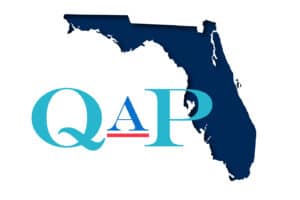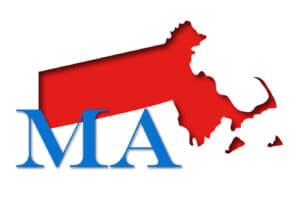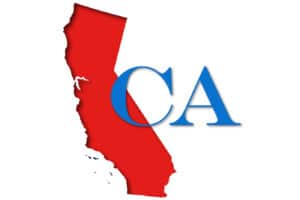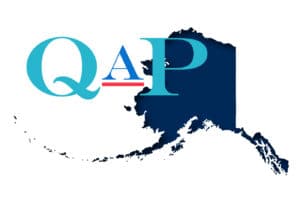Senior Housing

Examining Inequality in Housing for Older Adults
The Joint Center for Housing Studies of Harvard University released a new report, Housing America’s Older Adults 2019, as a supplement to its State of Nation’s Housing Report. The report finds housing inequality is becoming increasingly evident among older Americans as the number of older households climbs to unprecedented levels.

HUD’s 202 Program Secures White House FY 2020 Funding Anomaly
As Congress returns from its August recess, lawmakers must act to secure funding for fiscal year (FY) 2020 ahead of the September 30 deadline. The White House released a list of requested anomalies, or changes to the current funding levels and legislative language, if lawmakers rely on a continuing resolution (CR) to fund the government past Sept. 30. HUD’s Section 202 Housing for the Elderly secured a coveted spot on that list.

Florida Hosts Elderly Housing Community Loan Workshop Sept. 10
The Florida Housing Finance Corporation will hold a workshop regarding RFA 2019-118 “Elderly Housing Community Loan” on September 10 from 10 am to noon EDT at Florida Housing’s offices located at 227 N. Bronough Street, 6th Floor Seltzer Room, Tallahassee, FL. Funding under the RFA must be used to provide for life-safety, building preservation, health, sanitation, or security-related repairs or improvements to Developments currently serving Elderly residents aged 62 or older.

HUD Issues Section 202 NOFA
HUD issued a Notice of Funding Availability (NOFA) for Section 202 funds. Section 202 provides Capital Advance funding and project rental subsidies for the development and ongoing operation of supportive rental housing for very low-income persons, aged 62 years or older.

HUD Publishes RAD for PRAC Notice for Comment
The FY 18 Appropriations Act authorized the conversion of properties assisted by Section 202 Project Rental Assistance Contracts. HUD is in the process of revising the RAD Notice to include a new Section 4 that would provide implementation instructions for the conversion of Section 202 PRACs under RAD. HUD published a draft Section 4 to the Office of Multifamily Housing’s “Drafting Table” for feedback. Following consideration of public feedback received, the Office of Recap will proceed toward incorporation of the new Section 4 into a revised RAD Notice.

Boston Announces $26 Million for Affordable Housing
Boston Mayor Marty Walsh announced more than $26 million in new funding for housing from the Department of Neighborhood Development, the Neighborhood Housing Trust and the Community Preservation Fund. The funding will impact a total of 515 units, 459 new housing units will be created and 56 units will be preserved.

San Jose to Invest $100 Million in Affordable Housing
San Jose Mayor Sam Liccarddo announced that the city will devote nearly $100 million to 11 projects across the city over the next several years. The 11 projects are expected to provide 1,144 apartments to formerly homeless residents, low-income seniors and other vulnerable groups.

Harvard Joint Center Publishes New Report on Housing Older Americans
More than half of the nation’s households are now headed by someone at least 50 years of age. These 65 million older households are highly diverse in their living situations, financial resources, health and functional abilities, and life stages, and thus require different types of housing to meet their needs and preferences. Affordable, accessible housing […]

Senator Heller Introduces Senior Affordable Housing Tax Credit Act
On October 12, U.S. Senator Dean Heller (R-NV) introduced the Seniors Affordable Housing Tax Credit Act (S. 3580), legislation he authored to incentivize housing owners and developers to rent to low-income seniors. Heller’s proposed legislation would create a tax credit program that allocates credits to states, which, in turn, would be awarded to owners and developers […]

Harvard JHCS Blog Post Highlights Affordability Issues for Older Americans
Harvard Joint Center for Housing researchers Jennifer Molinsky and Whitney Airgood-Obrycki recently published a blogpost highlighting the rising in housing affordability challenges for older Americans. “Due to both population growth and soaring housing costs, the number of adults age 65 and over struggling to afford housing is growing. The number of cost-burdened older households – […]

GAO on Elderly Housing: HUD Needs to Improve Link to Resident Services
Among other things, GAO found that HUD lacks written policies regarding how service coordinators should be monitored in fulfilling Section 202 requirements.

Alaska GOAL Registration Requests Due June 24th; Teleconference Scheduled
In September 2016, Alaska Housing Finance Corporation (AHFC) will announce the FY 2017 Notice of Funding Availability (NOFA) for its Greater Opportunity for Affordable Living (GOAL) Program. For eligibility to apply for GOAL Program funds, all applicants are required to comply with a sequential three (3) step application process. Applicants will NOT be eligible to apply for GOAL funding unless they first meet both deadlines for Steps (1) and (2).